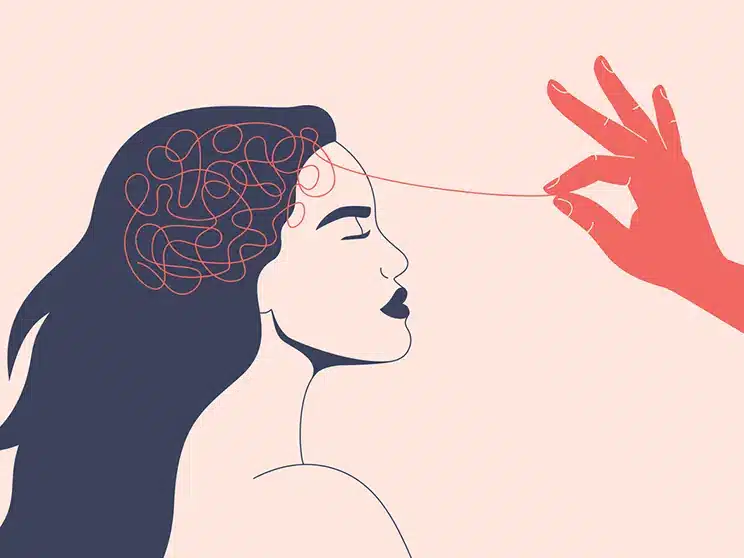How To Become A Mental Health Counselor?
Updated: February 8, 2024
Published: April 13, 2021

Mental health counselors provide support and guidance to individuals experiencing mental health difficulties. These trained professionals guide patients in identifying and understanding their thoughts, feelings, and behaviors and developing ways to cope with and improve their mental well-being. The professionals may work together with doctors, physicians, and other health professionals to uncover and deal with underlying issues.

This treatment approach is often used to treat varying conditions, including depression, anxiety, and PTSD. It can also be used to help individuals navigate life transitions and challenges. Therefore, a mental health counselor can be called upon to help individuals with visible mental health signs or whose conditions are barely noticeable.
Requirements To Be a Mental Health Counselor
Suppose you wish to become a mental health counselor. In that case, you need to earn a bachelor’s or master’s degree in counseling or related fields, complete a specific number of supervised clinical hours, and pass the licensure exam.
There may be specific requirements in your country in terms of licensing and supervised clinical hours. Therefore, check with relevant authorities in the country you would like to practice in.
Here is a breakdown of these requirements.
Education: You should have the right credentials before you are allowed to work as a mental counselor. In most places, you’ll need to earn a bachelor’s or master’s degree in counseling or a related field, such as psychology or social work. The program you take should be accredited by a recognized accrediting organization in the country in which you wish to practice. Where you wish to take a master’s, your bachelor’s degree may be in a related medical field, but that is not always the case.
Clinical Experience: Many bodies require a trainee to achieve a certain number of supervised clinical hours. This is around 2,000–3,000 hours before completing the licensure process. You can accomplish these hours through internships or practicums during your graduate program, or through post-graduate supervised work.
Licensure: You will also be required to be licensed to practice. Licensing requirements can vary from one state to another. However, they usually involve passing a licensure exam, such as the National Counselor Examination (NCE) or the National Clinical Mental Health Counseling Examination (NCMHCE), after meeting other requirements, such as education and clinical experience.
Continuing Education: Some practicing licenses require participating in education courses. This also includes staying up to date on the latest research and techniques in the field and getting certified for them.
Skills: Mental health counseling requires practitioners to have strong interpersonal and communication skills. They should also empathize with clients and provide support and guidance on specific issues they could be facing. Counselors should also have a solid understanding of mental health conditions and therapeutic techniques, as well as ethical and legal considerations related to counseling.
The specific requirements for your state or country can vary. So, do some background research. Your counseling for mental health career trajectory may require additional education and training, such as becoming a licensed psychologist or psychiatrist.

Types of Mental Health Conditions Mental Health Counselors Treat
Mental health is usually a broad term for a person’s overall psychological well-being. It includes the ability to build positive relationships, cope with stress, and function effectively in your daily life. Your mental health can be influenced by various factors, including genetics, the environment, and the experiences you have in life.
A common way to categorize mental health conditions is by their symptoms. Some examples of mental health conditions and their symptom categories include:
- Anxiety disorders: Includes generalized anxiety disorder and panic disorder.
- Mood disorders: These disorders involve depression and bipolar disorder.
- Psychotic disorders: include schizophrenia.
- Personality disorders: Involve borderline personality disorder and narcissistic personality disorder.
Anxiety Disorders
Anxiety disorders are mental illnesses marked by excessive and persistent worry or fear. Common anxiety disorders include generalized anxiety disorder (GAD), panic disorder, social anxiety disorder, particular phobias, and obsessive-compulsive disorder. (OCD). People with panic disorder may experience recurrent panic attacks, which are almost always sudden and accompanied by intense feelings of dread or terror.
Those with GAD may worry excessively and feel anxious about routine activities and situations. Specific phobias involve extreme and irrational fears of otherwise harmless items or circumstances. On the other hand, social anxiety disorder involves excessive fear of and avoidance of social situations. Finally, OCD patients experience intrusive, repetitive thoughts or actions that can impede day-to-day activities.
Mood Disorders
The term “mood disorder” refers to a collection of mental health conditions that cause changes in a person’s emotional or mood state. Depression is the most common mood disorder. Patients experience enduring feelings of melancholy, hopelessness, and loss of enthusiasm for or pleasure in activities.
On the other hand, bipolar disorder includes periods of abnormally elevated or irritable mood, known as mania or hypomania. This condition usually alternates with episodes of depression. Other common mood disorders include:
- Dysthymia (a milder but lasting form of depression).
- Cyclothymia (a milder form of bipolar disorder).
- Seasonal affective disorder (a type of depression that occurs during the winter months).
Psychotic Disorders
Psychotic disorders are a group of mental health conditions that usually present themselves with a loss of contact with reality. The most common psychotic disorder is schizophrenia. This condition involves a range of symptoms such as delusions (false beliefs), hallucinations (seeing or hearing things that aren’t there), disorganized thinking and speech, and abnormal behavior. Other psychotic disorders include schizoaffective disorder, delusional disorder, and brief psychotic disorder.
Personality Disorders
Personality disorders present themselves through enduring patterns of behavior, thoughts, and feelings that deviate from cultural norms and cause distress or impairment. A borderline personality disorder is one example of a personality disorder and is characterized by unstable moods, self-image, and relationships, as well as impulsive and self-destructive behaviors.
A narcissistic personality disorder is another common example, where patients experience an inflated sense of self-importance, a lack of empathy for others, and a need for admiration. Other types of personality disorders include antisocial personality disorder, avoidant personality disorder, and obsessive-compulsive personality disorder.
If you aren’t yet sure about earning a degree in counseling, earning a foundational degree in health science can be a good option. University of the People offers a bachelor’s degree in health science that will help you gain knowledge and skills in the areas of biology, psychology, anatomy, and physiology to make a difference in the rapidly growing, ever-changing field of health science. This degree builds a solid foundation to build your career or continue to graduate studies. Our associate degree and certificate programs in health science can also be a great choice for working professionals wanting to build a strong foundation in the area to eventually pursue advanced degrees in the field.
